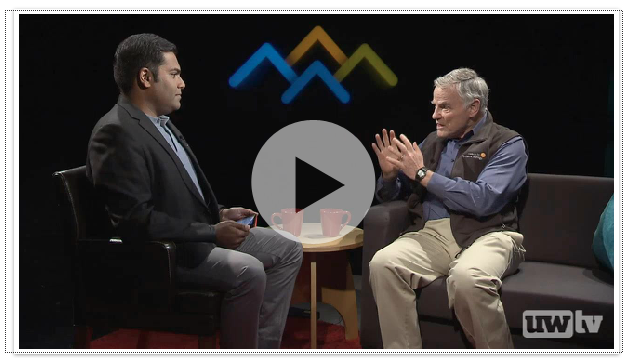UW’s Four Peaks TV: Dr. Lee Hood Speaks About Innovation
 isbscience.org/news/2013/05/24/uws-four-peaks-tv-dr-lee-hood-speaks-about-innovation/
isbscience.org/news/2013/05/24/uws-four-peaks-tv-dr-lee-hood-speaks-about-innovation/
Episode: Wellness and Science Pioneer
Dr. Leroy Hood says we may not recognize our healthcare system a decade from now. Innovation will make it more predictive, personalized, preventative and participatory — his four Ps. And through Dr. Hood’s systems-based approach, we’ll be focused far more on “wellness” than on “care.” That’s just one reason why he was recognized by President Obama with one of the highest awards in the land: the National Medal of Science. And it’s also why Dr. Leroy Hood of the institute for systems biology joins our exclusive list: “The Innovators.”
Four Peaks is a monthly current affairs show that taps into the Pacific Northwest’s rich endowment of idea generators, influential activists, business visionaries and inspired storytellers. Emmy Award-winning TV journalist and host Hanson Hosein interviews these creative leaders who have made it to the top of their respective “Peaks” of Innovation, Community, Entrepreneurship and Entertainment. In partnership with the University of Washington’s Master of Communication in Digital Media, Four Peaks is a provocative show that collides the views of our best and brightest.





